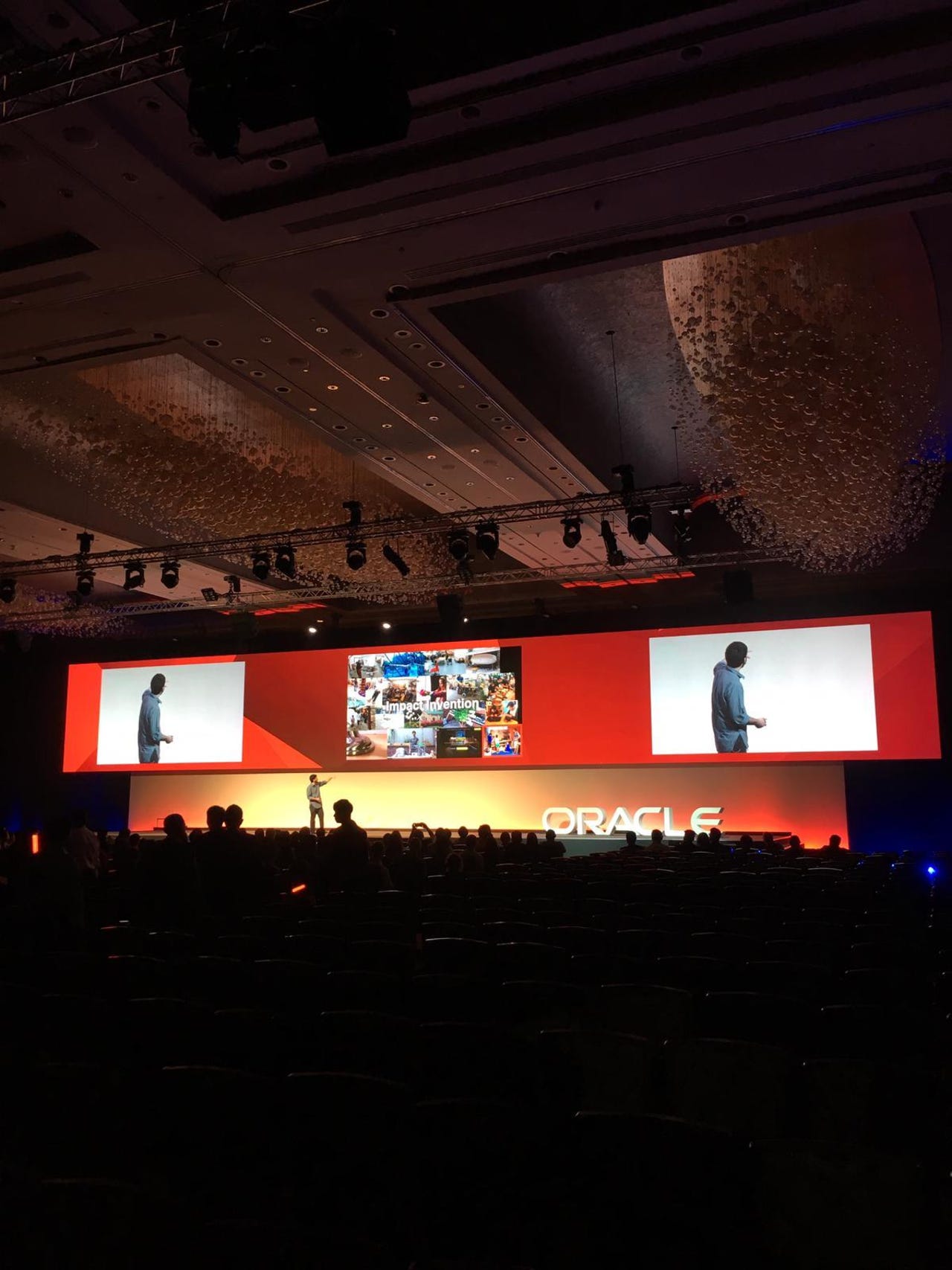Oracle makes a push for ‘adaptive’ AI to tackle increasingly complex IT problems
Besides just being used for specific scientific tasks in the past, AI is increasingly taking the mundane out of simple chores while removing human errors, such as forgetting to update the latest server patches, they add.
Yet, as an emerging technology, it is one companies are still working through to understand how it can be harnessed and fit into business systems and processes to ensure its fullest potential.
Oracle's approach is to make adoption easy, by adding it into the everyday apps companies use to help them problems out of the box, instead of having a custom-built AI slowly learn from customer data, said Loïc Le Guisquet, Oracle's president for Europe, Middle East, Africa, Asia Pacific and Japan.
Similarly, in the data space, Oracle's Autonomous Database, exploits AI twinned with autonomation which can patch itself and make decisions on data tuning and security, without the need for human intervention. As Le Guisquet said, AI is no longer just a promise like 30 years ago, but one being put into use every day by the company's customers.
For example, AI is able to help procurement teams better select buying options. It can enable human resource managers to sieve through hundreds of resumes by learning what is required for a job.
For cybersecurity, it will enable patches and features to be activated so that 80 per cent of cyberattacks can be stopped, said Le Guisquet. These loopholes are typically open because of a lack of human attention, he noted.

A big cloud push
AI is a big push into the future for a company that has focused on moving many of its customers from its on-premise database onto its own hosted cloud services in the past few years.
Oracle's own experience in transforming its solutions provides a good reference point for customers, according to Steve Miranda, executive vice president for Oracle Applications Product Development.
He pointed to the speed that the cloud model brought, which enabled Oracle to deliver more features to customers than before.
Before 2009, he said, customers might upgrade once every five to seven years, so the customer data that Oracle had on hand could be from as far back as 10 years back. This made it difficult to discern what its customers required, he noted.
With the cloud model, customers are running the same version and they all have the same features. This means Oracle could more effectively measure the effectiveness of the software's features.
"Now, we can very quickly make changes, measure those changes, make changes and measure those changes," said Miranda, explaining the iterative development.
He also pointed to the use of AI across Oracle's various software solutions for ERP (enterprise resource planning), human capital management, supply chain management and customer experience.
For example, AI can learn how to approve authorisations, say, for travel expenses or hiring of new employees. It can study the behaviour of a manager by understanding why, for example, he approves one subordinate's expenses but decides to question another's, even if the amounts are similar.
AI can also be applied to customer experience. Marketers can easily tap on the data expertise at hand to determine if they should e-mail or text a customer to get the best chance of a response, for example.
They can also look to AI for guidance for the timing of the contact to be initiated. These fine-grain details are laid out for human managers with the help of AI working the background, according to Oracle.
Yet another example of automation comes in the form of digital assistants, which enable employees to easily claim for their expenses.
An employee will only need to snap a photo of a receipt for lunch and send it via a message to an automated agent. The system learns from the date and time to see if the meal was consumed during lunch and to detect how much was spent. It approves when everything is in order.
The rules behind the system may be learnt over time but the interface to users will be simple, according to Oracle. And there are hundreds of such apps now available to customers to make life a lot easier.
Speed is essential
Indeed, many of Oracle's customers are looking to either disrupt a market or transform fast enough to ride that disruption. However, many do not make it past the initial stages.
Fewer than 20 per cent of innovation-focused projects are coming to life, according to a report released today by Oracle. This was primarily caused by a lack of focus and leadership, poor processes and ongoing resistance to change.
The survey of more than 1,850 decision makers across the Asia Pacific region in the cloud solutions and software market also showed that despite a clear link between growth and innovation, most of the companies interviewed have few plans little plan to be proactive in innovation over the next three years.
Among those that have taken a bigger step forward are at the Oracle OpenWorld Asia show in Singapore. They include Thai bank Siam Commercial Bank, regional airline Air Asia and Australia's Applied Precision Medicine.
Colin Dinn, Siam Commercial Bank's chief technology officer, said the bank was moved to run Oracle on the cloud because of the way customers were driving their interactions with the bank.
With more functions and capability, it helped the bank digital transform a number of its operations within a short time frame of just seven months, he told an industry audience at the Oracle OpenWorld Asia event.
For more information and to follow the content stream at day two of the conference, watch it here.